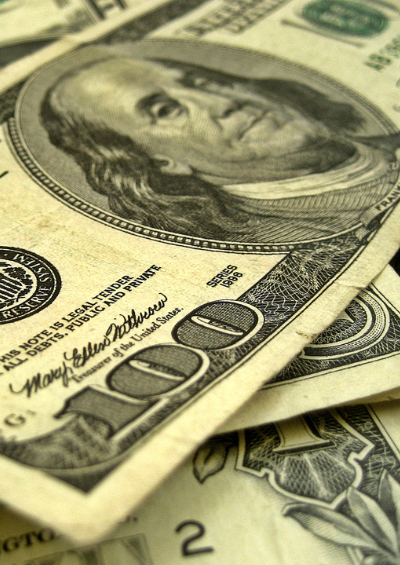Taking Stock of the World’s Billionaires
Stunning facts about the world’s wealthiest people.
April 6, 2015

One of the surprising bestsellers in 2014 was a dense academic tome by the French economist Thomas Piketty. In “Capital in the Twenty-First Century,” Piketty focused on the age-old question of why the rich seem to get richer.
We wonder: Which of the following statements about the world’s billionaires is true?
A. Billionaires make up 0.00003% of the world’s population.
B. The number of billionaires has increased by 70% since 2009.
C. Billionaires’ total wealth is $7.3 trillion.
D. Only 286 of the world’s billionaires are women.
A. Billionaires make up 0.00003% of the world’s population … is correct.
There were 2,325 billionaires in the world in 2014, according to data compiled by financial services firms Wealth-X and UBS.
That is, only 0.00003% — three one-hundred-thousandths of a percent — of the world’s population had net assets of at least one billion U.S. dollars. Put another way, there are about 3.1 million non-billionaires for every billionaire on the planet.
In fact, the number of the world’s billionaires equals only about a fifth of the year-round population of Davos, Switzerland (11,200). Davos is the exclusive resort village in the Swiss Alps where the rich and influential gather each January to discuss world affairs at the annual World Economic Forum.
Wealth-X and UBS count 211,275 people worldwide as possessing “ultra-high net worth” — or net assets of at least 30 million U.S. dollars. These ultra-high net worth individuals represent the top 0.003% of global wealth distribution.
B. The number of billionaires has increased by 70% since 2009 … is correct.
In 2009, the year after the global financial crisis, there were only 1,360 billionaires worldwide. Over the next five years, the number of billionaires increased by 70%. That is more than ten times the cumulative 5.9% increase in the world population since 2009.
Just six countries — the United States, China, United Kingdom, Germany, Russia and India — account for more than half (1,228) of the world’s 2,325 billionaires.
The United States alone (571) is home to almost a quarter. In fact, the United States has more billionaires than the next four countries combined — China (190), Britain (130), Germany (123) and Russia (114). Sixth-ranked India had an even 100 billionaires in 2014.
Between 2013 and 2014, China experienced a 20% increase in the number of billionaires — almost twice the 11% increase in U.S. billionaires. Britain, Germany and India had slight decreases.
And while the number of Russian billionaires increased from 108 in 2013 to 114 in 2014, their number — given the sharp decrease in the value of the ruble and world oil prices — quite likely will fall in 2015.
C. Billionaires’ total wealth is $7.3 trillion … is correct.
The total wealth of the world’s 2,325 billionaires in 2014 was $7.3 trillion. That is higher than the GDP of all but two countries (the United States and China) and is equal to about a tenth of world GDP ($78 trillion).
Wealth-X and UBS estimate the world’s total wealth — the total value of its cash, stocks and investments, real estate and other property — at $232.5 trillion. This means that just 2,325 people possess 3.1% of all global wealth.
By contrast, there are 3.2 billion adults worldwide — accounting for two-thirds of the world’s 4.9 billion adult population — who have less than $10,000 in net assets each.
The combined wealth of these 3.2 billion people, at $13.8 trillion, is not quite double the wealth held by the 2,325 billionaires — even though they outnumber the billionaires by a factor of 1.3 million to one.
D. Only 286 of the world’s billionaires are women … is correct.
The billionaires of the world are a male-dominated club. Of the 2,325 billionaires, 2,039 of them are men and only 286 are women. That is, women account for just 12% of the world’s billionaires.
Still, the world’s female billionaires have a combined net worth of $980 billion — an amount larger than the GDP of Indonesia ($868 billion), a country of 252 million people and the world’s 16th-largest economy.
Nearly half (47%) of the wealth of the world’s billionaires is derived from their ownership of privately-held businesses, while 30% comes from ownership of shares of publicly-traded companies. The remainder is in the form of cash, real estate and luxury goods.
The biggest gainer among the world’s billionaires in 2014 was Jack Ma, the founder of China’s e-commerce company Alibaba, whose initial public stock offering last May added $25 billion to his wealth.
Bill Gates — with a fortune of $87 billion, according to the Bloomberg Billionaires Index — remained the world’s richest person. With a net worth of $42 billion, Christy Walton, the daughter-in-law of Walmart founder Sam Walton, is the world’s wealthiest woman.
